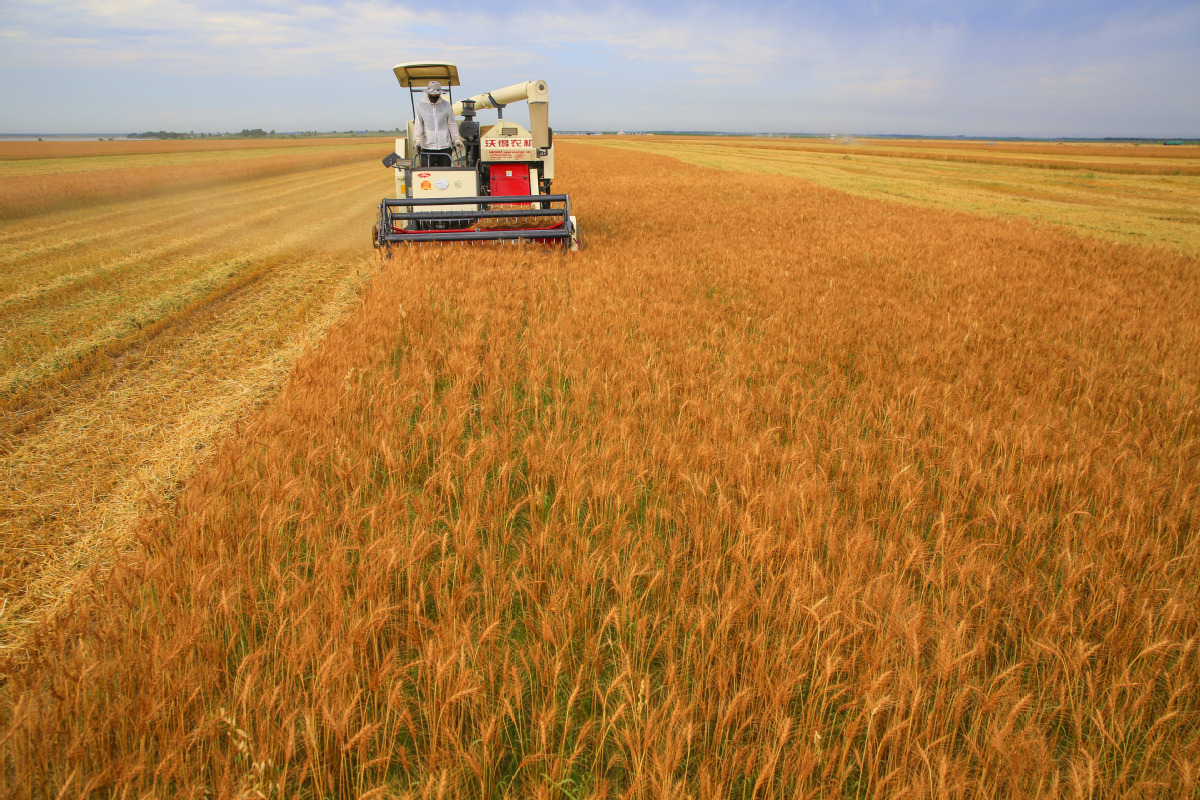NPC to step up effort to curb grain waste
By Li Lei | China Daily | Updated: 2020-08-14 09:36

Legislature considering establishing, revising rules to bolster food security
China plans to ramp up legislative efforts to curb grain waste from farmlands to dinner tables, according to a senior lawmaker on Thursday, in the latest attempt to bolster national food security.
The National People's Congress Standing Committee, the top legislative body, is considering revising or establishing rules to fight waste in grain production, purchase, storage, transportation, processing and especially consumption, according to Zhang Guilong of the committee's legal work commission, referring to the nation's sprawling catering service sector.
Zhang said the commission has created a special team to carry out the job, and they have started combing through existing rules and policies at home and abroad in preparation.
Though China's existing legal provisions have attempted to tackle food waste, they are scattered in a variety of laws and lack systemization, he told a news outlet owned by the Central Commission for Discipline Inspection.
Zhang explained that the efforts were aimed at creating a "long-term mechanism" to address the issue, given that the national farmland resource is scarce in relative terms considering the nation's 1.4 billion population-a long-standing national condition behind the policymaking logic.
The announcement came after President Xi Jinping recently underlined the risks posed to national food security and called for efforts to combat the practice.
As part of China's core traditional values, thrift has been enshrined in clauses in the Constitution and upheld by legislation including the Agricultural Law and the Civil Code enacted in late May.
In 2014, the central authorities released a guideline on curbing waste caused in government reception banquets, office canteens and restaurants as part of a broader effort to combat extravagancy and abuse of public funds.
Food waste has come under increasing public scrutiny as recent reports shine a spotlight on the scale of the waste in restaurants.
Each Chinese customer wastes an average of 93 grams of food per meal at restaurants, according to the Report on Food Waste in Chinese Cities, released in 2018 by the Institute of Geographic Sciences and National Resources Research under the Chinese Academy of Sciences.
In 2015, the waste in catering services was about 18 million metric tons, enough to sustain 50 million people for a year, the report said.
The scrutiny has also been felt by web celebrities who have soared to fame over the past few years by making lucrative videos in which "big stomach kings", as they are known, consume extremely large amounts of food.
Since late Wednesday, short video streaming giants including Kuaishou and Douyin have vowed to clamp down on videos falling in that genre by taking down such content or suspending or blocking user accounts, adding that video makers have caused unnecessary waste.
Binge eating videos, which originated from South Korea and gained popularity on the Chinese mainland in 2016, had previously been blamed as unhealthy entertainment because many big stomach kings purged after the livestreaming sessions, which health experts say could cause serious eating disorders or even death.
























